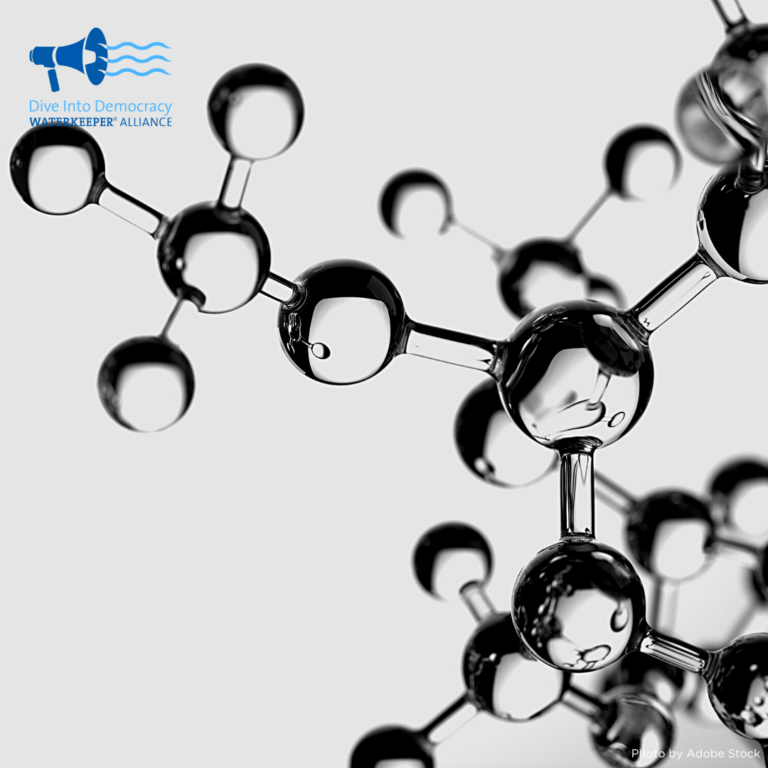Tell Congress to Pass the Clean Water Standards for PFAS Act!
By: Thomas Hynes

A family of dangerous emerging contaminants, PFAS, or per- and polyfluoroalkyl substances, poses a serious risk to human health and the wellbeing of our nation’s waterways. PFAS are often referred to as “forever chemicals” because they break down very slowly over long periods of time and accumulate in people and our food chains, wildlife, aquatic life, plants, and the environment. These colorless, tasteless chemicals have been linked to a variety of adverse health outcomes, including cancer, liver and kidney disease, and reproductive issues.
PFAS are unfortunately pretty ubiquitous in our daily lives. They are found in a variety of products, including non-stick cookware, firefighting foam, stain-resistant clothing, and even dental floss. As a result, PFAS are also found in our environment, specifically in our water. This helps explain why approximately 110 million Americans have PFAS in their drinking water.
According to a recent study, a staggering 97 percent of human blood samples were found to contain PFAS, which is especially troubling given how detrimental these chemicals are to human health. (Waterkeeper Alliance recently published a report on PFAS contamination of US surface waters.)
Despite the obvious danger and widespread prevalence of these contaminants, they are mostly unregulated by the U.S. Environmental Protection Agency (EPA). But we can change that!
The Clean Water Standards for PFAS Act could help stop PFAS contamination at its source, which will be necessary if we hope to reduce exposure to these dangerous toxins. The bill would require EPA to set new standards under the Clean Water Act for at least nine industry categories that are known to discharge PFAS into the environment. These standards would restrict the flow of PFAS chemicals into surface waters and to the public treatment works which are not equipped to treat them.
Additionally, the Clean Water Standards for PFAS Act would:
- Require EPA to review the sources of PFAS in waterbodies and use that information to set protective limits on the amounts that can be released.
- Establish water quality criteria for each measurable PFAS and class of PFAS within three years.
- Set enforceable deadlines for EPA to develop effluent limitations, including industrial pretreatment standards, for measurable PFAS and classes of PFAS.
- Provide appropriations and funding for EPA to swiftly complete this vital work.
These invisible, unbreakable, and unnatural chemicals have endangered our communities for far too long. Fortunately, we have the chance to protect millions of Americans from PFAS, but we cannot afford any delay. The time to act is now!
Your support can help turn this proposed legislation into a reality. Contact your Members of Congress today in support of this urgently needed legislation.